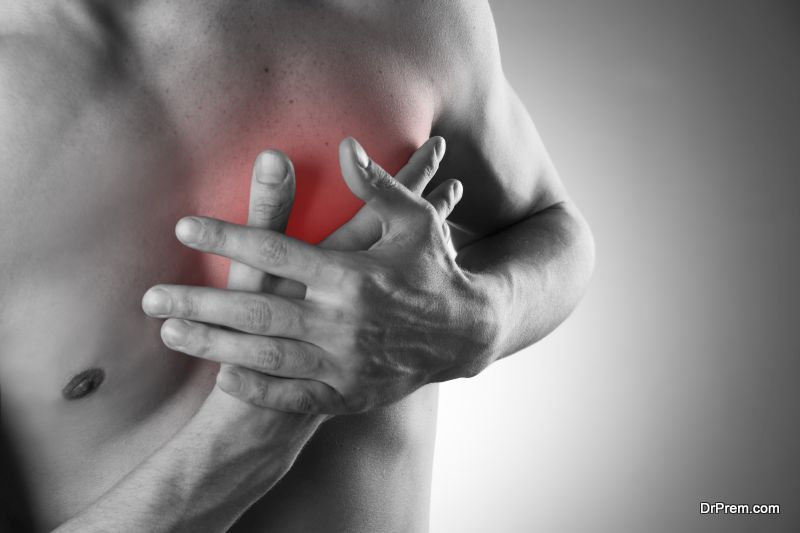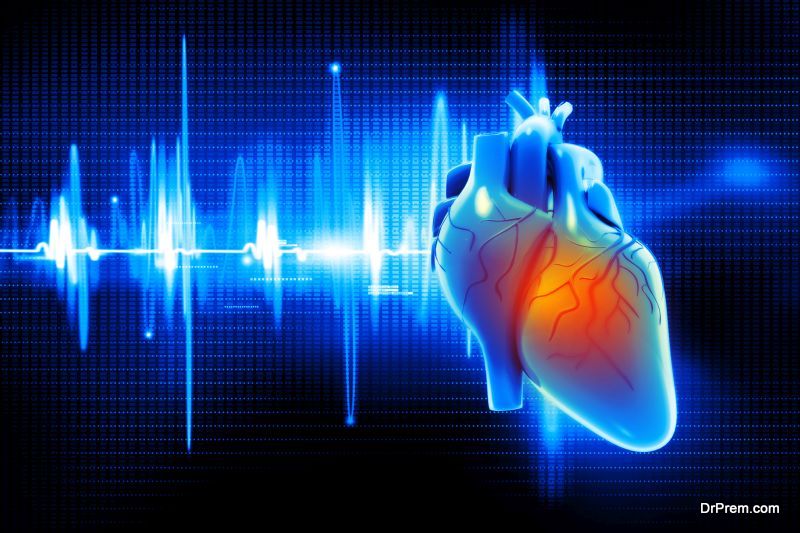There are 610,000 deaths related to heart disease in the United States each year. Heart disease and heart related conditions are all too common among adults. Some conditions are due to genetics, while others are preventable through diet, exercise, and maintaining a healthy, active lifestyle. This includes routine check-ups at the doctor and knowing the warning signs. This article will detail common heart related conditions, warning signs, and treatment options.
Heart Attack 
Heart attacks are one of the most common side effects of heart disease. A heart attack occurs when not enough blood flow reaches the heart muscles. The more time that passes without blood flow restored, the more damage is done. Some heart attacks are actually silent, which means that a person can suffer a heart attack and not know it. The attack is not accompanied by pain or discomfort, but the internal damage is done. For those heart attacks accompanied by pain, the symptoms are pretty obvious and characteristic of a heart attack. They include, but are not limited to:
- Pain in the chest, neck, back, or arms (commonly on the left side of the body)
- Fatigue
- Anxiety
- Abnormal heartbeat
- Dizziness
There are a few ways to lower your risk of heart attack. Lowering stress levels is extremely important. When you are under a lot of stress, your blood pressure rises, which can lead to heart attack. Monitoring your blood pressure regularly is another step in the right direction. Eating a well-balanced diet and remaining active can also reduce your risk. Other factors to monitor are cholesterol and blood sugar.
Heart Failure

Heart failure is exactly what it sounds like – when your heart fails to work properly. Heart failure is also known as congestive heart failure and occurs when the heart isn’t pumping blood efficiently. This prevents necessary blood and oxygen from reaching the heart. Certain factors can cause heart failure. These include high blood pressure and narrowed or clogged arteries. Over time, the heart becomes too weak to pump efficiently. Under other circumstances, the heart becomes stiff, preventing ventricles from filling properly or fully between beats. There are many physical symptoms and warning signs of heart failure that you should be aware of. Recognizing these signs can help save your life. They include:
- Shortness of breath
- Swelling in the ankles, feet, hands or abdomen
- Fatigue and weakness
- Irregular heartbeat
- Persistent cough or wheezing
- Increased need to urinate at night
These symptoms can be signs of other medical conditions but they are also related to heart failure. There are some ways to help prevent heart failure, although not all conditions can be reversed. Preventive methods for heart failure are similar to those for preventing heart disease and include regular exercise, a healthy diet, reduced stress, adequate sleep, and limiting the use of alcohol and tobacco products. Scheduling regular check-ups with your doctor or cardiologist is also recommended. Telecardiology services are great alternatives for individuals who have difficult traveling due to their condition.
Angina

Angina is the chest pain and discomfort a person feels due to reduced blood flow to the heart. The onset feelings of angina are very similar to those experienced during a heart attack but they’re actually a warning sign, not an actual attack. Angina occurs when there is a blockage in the arteries preventing proper blood flow and oxygen to the heart. These feelings may subside pretty quickly but shouldn’t be taken lightly. They are clear signs that you are having heart related complications and need to seek additional medical attention and evaluation.
There are three types of angina – stable, unstable, and Prinzmetal. Stable is the most common form of angina and is often related to stress of physical exertion. The sensation often passes following the event that caused it. Although it’s not a heart attack, stable angina is a sign that you are at risk for one and should be taken seriously.
Unstable angina can affect a person even while at rest. This pain is not as fleeting as stable angina and may subside and return multiple times before finally dissipating. Unstable angina can actually be followed by a heart attack. Prinzmetal angina is a very rare condition that can happen in your sleep. During this type of angina, the arteries to your heart suddenly tighten or narrow, causing sharp, unexpected chest pain. This condition needs immediate medical attention.
Several things can cause angina including an enlarged heart, a blockage of the artery, a tear in the wall of the aorta, swelling of the sac around the heart or a narrowing of the main valve of the heart. Symptoms include burning, aching, heaviness or fullness in the chest, and overall discomfort. Treatment includes medication and lifestyle changes to help increase blood flow to the heart.
Arrhythmia

Arrhythmia is a common condition when the heart beats irregularly, too fast or too slow. Arrhythmia feels differently for each person and is sometimes described as a flutter, brief pause in beats or an increased heart rate for a short period of time. Sometimes, the irregularity is so mild and brief that people don’t even realize it, while others feel lightheaded or dizzy following an arrhythmia. If you experience a heart rate that is too slow, it is known as bradycardia. A rhythm that is too fast is called tachycardia.
If you experience arrhythmia multiple times or the symptoms interfere with your daily routine, it’s suggested you seek medical attention. Your cardiologist will most likely order an EKG or electrocardiogram. An EKG machine records your heart’s electrical impulses and monitors whether or not it is beating properly. Once this is determined, treatment options can be explored. Medication is a common recommendation for people suffering from arrhythmia. Certain medications can help regulate the heartbeat as well as reduce your risk of developing clots or having a stroke. In severe cases, a patient might need to have a pacemaker surgically implanted. Pacemakers use electrical pulses to prompt the heart to beat normally.
The heart is one of the most important organs in the human body. When your heart isn’t functioning properly, it can impact your entire life. Maintaining a healthy diet, active lifestyle, and monitoring your heart health are essential for living a long, prosperous life.
Article Submitted By Community Writer




